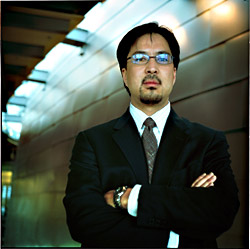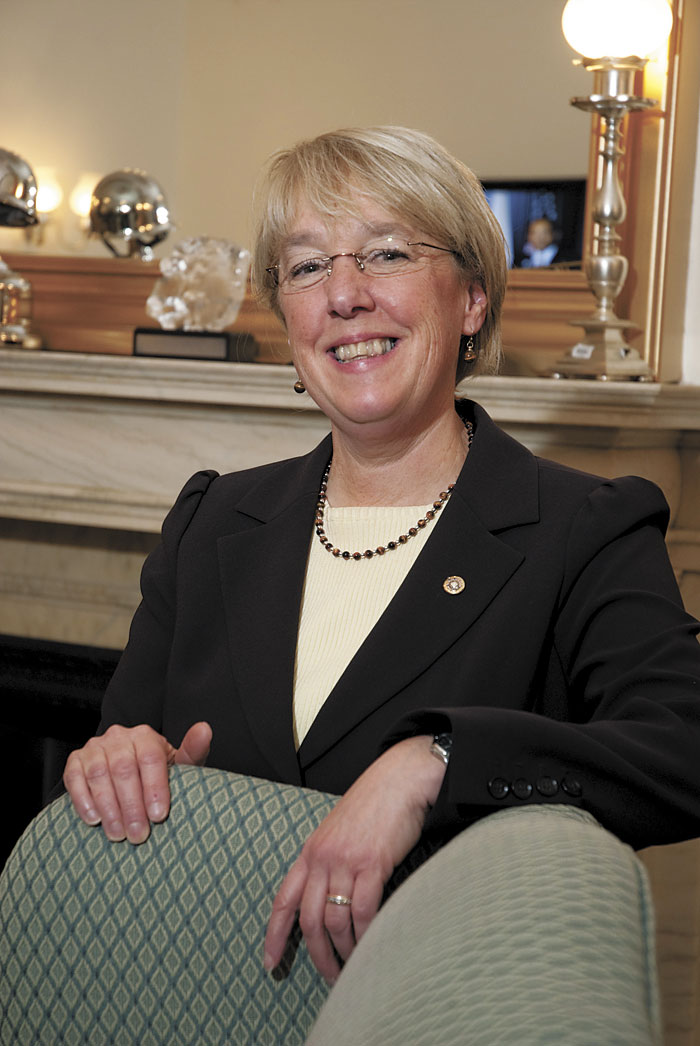It was his second day on the job in January when David Namura, Seattle City Council member David Della’s chief of staff, got a routine request: Write an op-ed piece for his boss about the viaduct that would run in The Seattle Times before a March 13 public vote on how to replace the decrepit elevated highway.
Namura set to work shortly thereafter, spending a few hours composing a rough draft that was about 1,600 words in length. The op-ed, published with Della’s byline, argued in favor of rebuilding the viaduct and ran in the Feb. 25 Seattle Times, opposite a piece by the mayor which urged residents to vote against the rebuild.
Weeks before his op-ed was finalized, Namura says it dawned on him to ask about local ethics laws and campaign-related communications. He says he contacted Wayne Barnett, the city ethics commission’s executive director, who cautioned him not to do any more work on the op-ed using city time or equipment. Namura says he only wrote the first draft of the piece in the office, but even this is a no-no, according to state and city ethics laws. Hence, Namura says, a complaint has been filed with the Seattle Ethics and Elections Commission.
While Della’s office could be fined up to $5,000 for the infraction, Namura says the number he’s hearing is in the neighborhood of $250 and that the commission will likely take up the issue during its May 2 meeting. Barnett says he can’t confirm or deny the existence of a complaint at this time because of an office gag policy to ensure proceedings aren’t prejudiced before they’re made public.
The city’s ethics law is a carbon copy of the state statute, which came into being via a 1972 citizens’ initiative that created the state’s Public Disclosure Commission. It forbids civil servants and their staff from using public resources to influence the outcome of elections, no matter if it’s a duel between individual candidates or a ballot measure. And in the case of Della, who’s up for re-election against former city ethics commission chairman Tim Burgess in the fall, it apparently doesn’t matter that the viaduct’s plight is something the City Council had been actively considering and voting on for months.
Sitting in the Columbia Center Starbucks across the street from City Hall, Namura says he was distracted with the challenges of being new on the job when the op-ed request came in. But he’s quick to say this isn’t an excuse.
“Frankly, I didn’t do my due diligence to begin with,” Namura concedes.
But Namura’s no political neophyte: He came to Della’s office from D.C., where he worked in government relations for the Society of Human Resource Management and served as a fellow in the office of Hawaii Sen. Daniel Inouye. In 2000, Namura led field efforts for Colorado congressional candidate Ken Toltz, and also previously worked as a legislative aide for the Colorado General Assembly.
Della, whose former chief of staff Tatsuo Nakata was killed after being struck by a car in West Seattle in November (see related story on p. 21), says he’s sympathetic to the fact that Namura was green when he got the assignment.
“Given the timing of the request made to my office, I understand the confusion about whether it was appropriate for staff to spend any time on this matter,” he says. “However, I’ve made it clear to my staff what the rules are, and my expectations that they abide by them. I’m accepting responsibility so we can all get back to serving the public.”
Though willing to admit his mistake, Namura says he is frustrated with the strength and scope of the city’s ethics law as it relates to this situation.
“The viaduct, at every level, is an issue that has direct impact on the city,” he says. “As a council member, David has an obligation to share his views on it. One of these ways is through an op-ed.”
Lori Anderson, a spokesperson for the Public Disclosure Commission, says nothing in the law forbids public officials from expressing their opinions— they just can’t use the equipment in their offices or staff time to do it.
“The statute is saying you can’t use staff time to support or oppose or try to persuade one way or the other,” she says. “Just because someone’s in office, they’re not giving up their rights to work on a ballot measure. Just don’t cross that line where you’re using public facilities.”
But Namura says it’s more than just a question of personal rights. It’s a question of practicality.
“Whether they’re up for referendum or not, working on issues is what staff does,” he says. “The law makes our job more cumbersome and more complicated than it needs to be. I’ve never experienced anything like this at any level of government that I’ve worked.”
Not surprising, says David Freel, executive director of the Ohio Ethics Commission and past president of the Council on Governmental Ethics Laws, who says Washington’s law sounds heavy-handed when compared to those of other states.
“I doubt other states go that far,” he says. “It sounds pretty broad and far-reaching in terms of what activity it prohibits overall. Whether the citizens of Washington believe it is a better protection, that’s certainly for [them] to decide.”
The Public Disclosure Commission’s Anderson says the scope of the state law, which is the same as the city’s statute, has not changed in more than 30 years.
The last time the ethics commission busted someone for an infraction similar to what Namura is alleged to have committed, it wasn’t because of a ballot measure. It was because the mayor used staff and city equipment to create a newsletter titled “Three Years of Accomplishments, Making a Difference in People’s Lives,” which was mailed to more than 3,000 constituents during Nickels’ bid for re-election in 2005.
Nickels fought the complaint, arguing that the newsletter fell within the scope of “normal and regular conduct” of the mayor’s office. But the ethics commission ultimately disagreed, forcing to mayor to tap his campaign coffers and reimburse the city to the tune of $2,000.
The commission’s deliberations centered on whether the “tone, tenor or timing” of the mayor’s newsletter proved intent to influence the election. Although the mayor’s distribution of the newsletter may have been “normal,” the commission, in the majority opinion, said it was “not regular, because it is not specifically authorized by an express law.”
“There is no bright line that makes conduct either lawful or illegal depending on whether it occurs on December 31 of the prior year or on January 1 of an election year,” the commissioners wrote. “However, the use of public facilities in an election year will receive heightened scrutiny from the commission.”
But even in this seemingly cut-and-dried case, there were two no votes—a fact that may bode well for Della. “Because politics and speech are dynamic, finding the space between permissible communications and prohibited electioneering is not easy,” Commissioner Mel Kang wrote in his dissenting opinion. Commissioner Michele Radosevich said the commission failed to establish any standards before assessing the fine. “We have an obligation to take this matter up again and to fashion a regulation that will provide elected officials with a clear ethical standard regarding constituent communications,” she wrote.
Namura, for his part, just wants this to go away.
“I hope [the May ethics commission meeting] comes and goes,” says Namura, “so council member Della can spend time focusing on issues important to the citizens of Seattle.”






